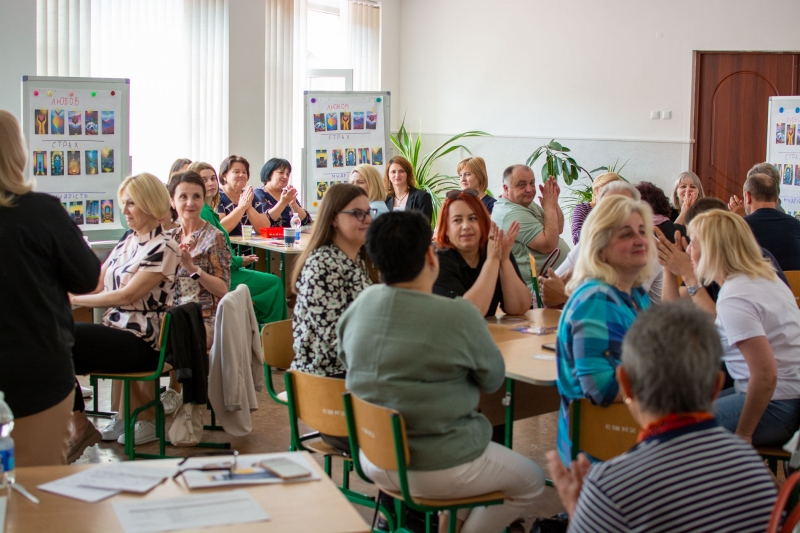The Adaptation Cycle of Basic Secondary Education: FIRST RESULTS
The 2023/2024 academic year has come to an end. And with it, the first stage of studying for students who receive basic secondary education according to the new State Standard has come to an end. So it’s time to take stock, identify problems and look for ways to improve the educational process in the future.
The Lviv Institute of Postgraduate Pedagogical Education has trained a cohort of teacher-trainers under the programme “Implementation of the NUS Reform: Completion of the Adaptation Cycle”, whose task is to conduct trainings in hromadas with heads of educational institutions, their deputies and teachers of language and literature, social and historical, mathematical and natural sciences.
The training of heads and their deputies in the Drohobych LG took place at Lyceum No. 2, which is one of the one hundred schools in Ukraine piloting the implementation of the NUS (director – Larysa Pankevych). The trainers were Halyna Marchuk, Director of the Centre for Professional Development of Teachers of the Drohobych City Council, and Oksana Kiliyan, Deputy Director of Lyceum No. 2.
The training focused on change management, the effective transition from primary school to the adaptation cycle of basic secondary education; creating a favourable environment for students’ learning and development; using new methods and approaches to teaching; assessing cross-cutting skills and group results of students; and the importance of monitoring and analysing educational activities. A useful presentation was made by Liubov Onysko, consultant of the EDCU, who outlined the structure of a modern lesson and defined its components in accordance with the recommendations of the State Education Quality Service. Oksana Kiliyan presented the results of the international PISA-2022 study, which showed significant educational losses in reading between the two PISA cycles. Olha Chaikivska, primary school teacher at Lyceum No. 2, teacher trainer, demonstrated effective methods of developing students’ reading competence. Halyna Marchuk introduced the audience to the management tool – integral dynamics, which is a model of human development based on the study and classification of dominant value systems and thinking paradigms.
It is important to emphasise that the NUS reform is not without problems. There are certain difficulties associated with its implementation, such as the need to retrain teachers, provide schools with new resources, and adapt curricula.
However, despite these challenges, it is important to remember that the NUS reform is aimed at making Ukrainian education more modern, flexible and student-centred. This is something that will help Ukraine to raise a new generation of educated, free and responsible citizens who will be able to build a better future for the country.
Training of heads of LEAs and their deputies under the programme “Implementation of the NUS reform: completion of the adaptation cycle”

